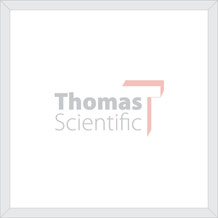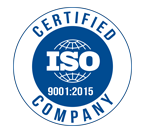Biologically Active Small Molecules, UN3462, 5 mg
-
Ochratoxin A
Cayman ChemicalA mycotoxin produced by A. ochraceus, A. carbonarius, and P. verrucosum that is commonly found as a food contaminant (Tolerable Weekly Intake = 100 ng/kg body weight per day); triggers nephropathy, induces renal adenomas, and initiates skin tumors through events involving oxidative stress,…
-
HT-2 Toxin
Cayman ChemicalAn active, deacetylated metabolite of T-2 toxin; inhibits protein synthesis and cell proliferation in plants; causes acute and chronic toxic effects in animals that ingest contaminated plant materials.
-
Patulin
Cayman ChemicalA mycotoxin produced by a variety of molds, including Aspergillus and Penicillium, commonly found in rotting apples; demonstrates an oral LD50 between 29 and 55 mg/kg body weight in rodents and 170 mg/kg body weight in poultry and has been shown to induce nephropathy and gastrointestinal tract…
-
Tunicamycin
Cayman ChemicalA specific inhibitor of N-linked glycoslylation that blocks the first step of glycoprotein synthesis and induces protein unfolding; impairs the function of several receptor tyrosine kinases, including EGFR, ErbB2, ErbB3, IGF-IR, and ALK; radiosensitizes glioma and pancreatic adenocarcinoma cells to…
-
Aflatoxin G1
Cayman ChemicalA food contaminant produced by Aspergillus that is associated with toxicity and hepatocarcinogenicity in human and animal populations.
-
7-Aminoactinomycin D
Cayman ChemicalA fluorescent DNA dye that is commonly used for the detection or exclusion of non-viable cells in flow cytometric analysis; exhibits minimal spectral overlap with and can be used with PE and FITC; can also be used to evaluate apoptosis and cell-mediated cytotoxicity, and to stain DNA in cells that…
-
T-2 Toxin
Cayman ChemicalA trichothecene mycotoxin that can infect grain crops causing alimentary toxic aleukia in humans and animals; inhibits protein synthesis, disrupts membrane phospholipid metabolism, increases lipid peroxides in the liver, and is highly cytotoxic to macrophages (IC50 = 19.47 nM), altering the…
-
Aflatoxin B1
Cayman ChemicalNaturally occuring mycotoxin and food contaminant that induces the transversion of G to T at codon 249 of the p53 tumor suppressor gene and is a likely pathogen that causes hepatocellular carcinoma.
-
Echinomycin
Cayman ChemicalA cell-permeable inhibitor of HIF-1-mediated gene transcription which acts by intercalating into DNA in a sequence-specific manner, blocking the binding of either HIF-1α or HIF-1β to the HRE; reversibly inhibits hypoxia-induced HIF-1 transcription activity in U215 cells with an EC50…
-
Actinomycin
LKT LabsActinomycin D is a polypeptide antibiotic produced from Streptomyces; it exhibits anticancer chemotherapeutic activity but does not display antibacterial benefit. Actinomycin D is clinically used to treat various cancers and is one component of the VAC chemotherapy regimen. Actinomycin D binds DNA,…
-
-
Aureothin
Cayman ChemicalA natural nitroaryl-substituted polyketide that exhibits antitumor, antifungal, and insecticidal activities; non-competitive inhibitor NADH:ubiquinone oxidoreductase of bovine heart, N. crassa, and E. coli (IC50s = 0.07, 0.08, and 22 nmol/mg protein, respectively).
-
Bafilomycin B1
Cayman ChemicalA selective, reversible inhibitor of V-ATPases in mammalian, plant, or fungal cells with an IC50 value in the 4-400 nM range; at 100 nM, the related bafilomycin A1 blocks V-ATPase-mediated acidification of lysosomes during autophagy, preventing protein degradation.
-
Citrinin
Cayman ChemicalA mycotoxin found as food contaminants that causes mycotoxic nephropathy in livestock and Balkan nephropathy and yellow rice fever in humans; induces apoptosis, blocks tubulin polymerization, and disrupts mitotic spindle assembly.
-
Bafilomycin C1
Cayman ChemicalA selective, reversible inhibitor of V-ATPases in mammalian, plant, or fungal cells.
-
Radicicol
Cayman ChemicalA natural product with antibiotic, antifungal, and antimalarial properties; binds and inhibits heat shock protein 90 (HSP90) with nanomolar affinity.
-
Anisomycin
Cayman ChemicalA pyrrolidine antibiotic produced by S. griseolus that inhibits protein and DNA synthesis and activates stress-activated protein kinase, MAPK, and other signal transduction pathways.
-
Cytochalasin H
Cayman ChemicalA potent inhibitor of actin incorporation into filaments; also increases the steady-state diffusion coefficients of filaments, suggesting that it stimulates filament shortening.
-
Alternariol
Cayman ChemicalA mycotoxin produced by Alternaria molds; induces cytochrome P450 1A1 expression and apoptosis in mouse hepatoma cells (20-40 μM).
-
Mitomycin C
Cayman ChemicalAn antitumor antibiotic that crosslinks double stranded DNA and is widely used as a tool to selectively inhibit DNA synthesis and mutagenensis, to stimulate genetic recombination, chromosome breakage and sister chromatid exchange, and to induce DNA repair.
-
diacetoxy Scirpenol
Cayman ChemicalA potent, trichothecene mycotoxin produced by certain Fusarium strains that is toxic to fungi, plants, animals, and various mammalian tissue cultures via inhibition de novo protein synthesis.
-
CPI-169
Cayman ChemicalA selective EZH2 inhibitor (IC50s = 0.24, 0.51, and 6.1 nM for wild-type EZH2, Y641N mutant EZH2, and wild-type EZH1, respectively); decreases cellular levels of H3K27me3, triggering cell cycle arrest and apoptosis in NHL cell lines (EC50 = 70 nM) and NHL xenografts (200…
-
Alamethicin
Cayman ChemicalA membrane active peptide antibiotic of the peptaibol class that strongly induces helical peptide structures and forms voltage-gated ion channels in the lipid bilayers of cell membranes; often used to study ion channel assembly, voltage gating, and peptide-membrane interactions as well as to induce…
-
Enniatin B1
Cayman ChemicalA cyclohexadepsipeptide that has been shown to induce apoptosis in several cancer lines (EC50s ≤ 10 µM) and to decrease the activation of the cell proliferation kinase, ERK (p44/p42); inhibits the multi-drug resistance transporter Pdr5p from S. cerevisiae.
-
Nigericin (sodium salt)
Cayman ChemicalAn antibiotic derived from S. hygroscopicus that acts as a potassium ionophore promoting K+/H+ exchange across mitochondrial membranes; used as a research tool to disrupt intracellular H+ and K+ concentration, thus altering pH, membrane potential, and cell volume.
-
Ellipticine
Cayman ChemicalA DNA-intercalating antitumor agent that forms covalent adducts in DNA after being enzymatically activated with CYP3A4, CYP1A1, or CYP1A2 or by peroxidases in target tissues; inhibits the proliferation of human breast adenocarcinoma, leukemia, neuroblastoma, and glioblastoma cells (IC50s…
-
Gliotoxin
Cayman ChemicalAn immunosuppressive mycotoxin which inhibits 20S proteasomal chymotrypsin activity (IC50 = 10 μM), preventing activation of NF-κB; induces apoptosis in monocytes and dendritic cells and reduces phagocytosis by neutrophils; inhibits geranylgeranyltransferase I and farnesyltransferase (IC50…
-
Digitoxigenin
Cayman ChemicalA cardenolide and aglycone constituent of digitoxin that elicits cardiac contraction and cardiotonic effects by inhibiting the Na+/K+ ATPase; inhibits protein synthesis and has been examined for use as an antitumor compound.
-
Enniatin A1
Cayman ChemicalAn analog in the enniatin complex; induces apoptosis in cancer cells (EC50 = 5 µM in H4IIE rat hepatoma cells), decreasing the activation of ERK (p44/p42) and inhibiting TNF-α-induced NF-κB activation.























